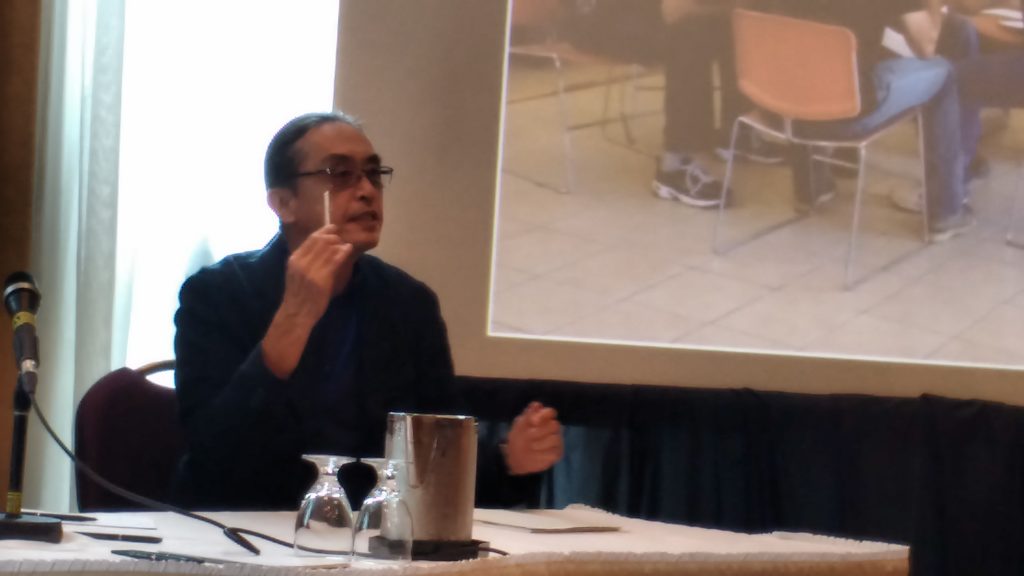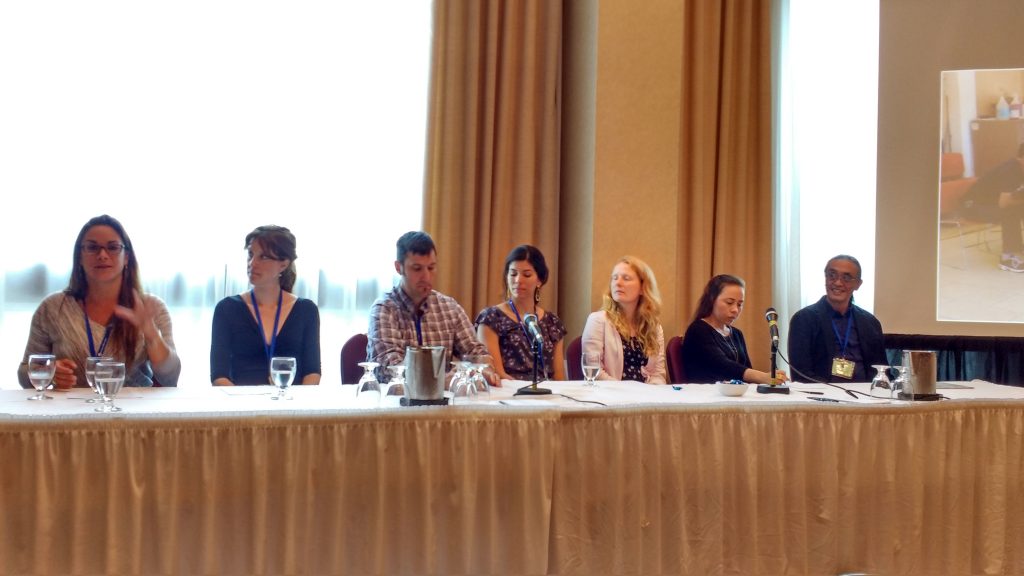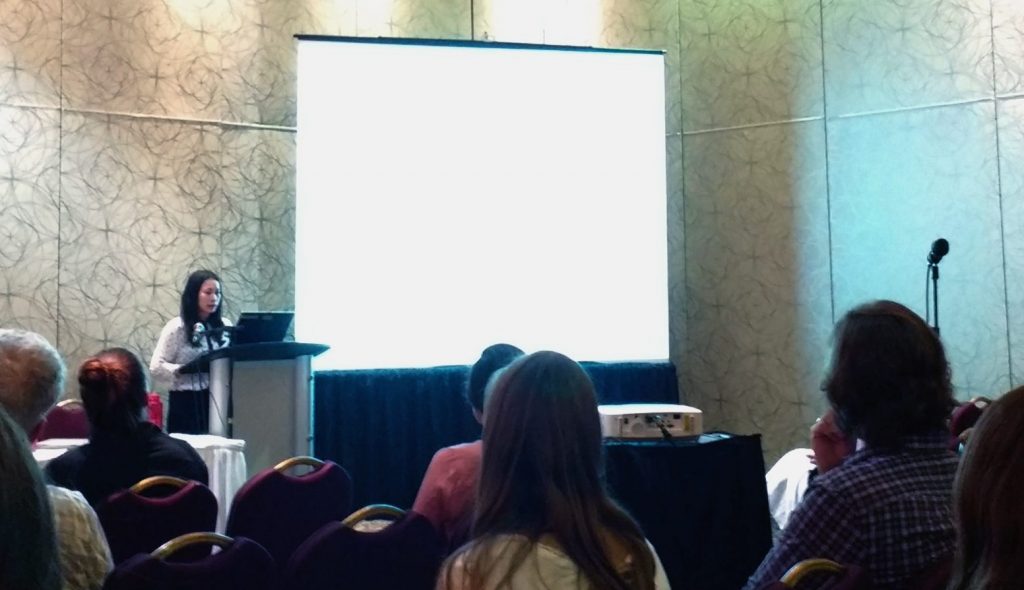I. TBTI session on 'Conservation and stewardship in small-scale fisheries: Practices and lessons from around the world'
On July 28th and 29th 2016, Leading up to the International Marine Conservation Congress (IMCC), a group of 20 practitioners from across the globe met as part of Too Big To Ignore's stewardship cluster. Together, we explored the conditions that inhibit and enable stewardship activities in small-scale fisheries. This conversation continued at the IMCC during a session on Conservation and stewardship in small-scale fisheries: Practices and lessons from around the world, giving heightened attention to the many ways these fisheries engage in stewardship and contribute to improving resource sustainability.
This symposium drew on examples from the United States (Alaska), Canada (Newfoundland), Japan (Okiniwa), Mexico (Holbox Island), Jamaica, and Brazil (Babitonga Bay) demonstrating the significant role of, and opportunities for, small-scale fisheries worldwide. Through these examples we discussed the enablers of stewardship, and learned that while each situation was unique, the factors leading to conservation and stewardship behaviours are comparable. Listed below is a selection of enabling factors mentioned from the case studies that contribute to fisheries stewardship and conservation.
- Fish harvesters possess a wealth of knowledge and are experts in local fisheries. This knowledge and expertise, if supported and encouraged, can lead to enhanced stewardship arrangements and localized solutions in fisheries.
- The process for any stewardship endeavor influences the end result. The presence of strong networks, relationship-building, multi-level linkages/communication, trust, cohesion, a clear vision, application of harvesters skills, and effective use of scientific knowledge are all factors that can influence the process of stewardship initiatives.
- Low impact gears can improve the quality of fish and enhance marine conservation. Harvesters are likely to choose these gears if supported by good market conditions.
- Flexible and localized approaches are needed, incorporating fish harvester knowledge and recognizing the value of small-scale fisheries for food security, livelihoods and wellbeing.

Tetsu Sato on the importance of being a 'humble scientist' as a key in establishing good relationships with local communities
In discussions related to marine conservation, it is common to hear about the issues associated with fishing. This session was a welcome shift, discussing good news for a change and exploring the positive actions initiated by fish harvesters who act as stewards of the resource. These behaviours are not uncommon, and there are many examples to share. The stewardship cluster is examining a number of cases to better understand and celebrate these efforts, and look at their implications for broader marine conservation.
The full list of session presenters can be found below:
1. Kim Olson: So what if closures are temporary and voluntary? A case of snow crab fisheries in Newfoundland
2. Rachel Donkersloot: Reconstructing stewardship: Local conservation practices and principles in Alaska's small-scale fisheries
3. Tetsu Sato: Autonomous actions to restore damaged corals by Onna Village Fishery Cooperative producing significant impacts on coastal social ecological systems
4. Nadia Rubio-Cisneros: An interdisciplinary approach to study long-term coastal exploitation at Holbox Island in the North coast of Quintana Roo, Mexico
5. Steven Alexander: Social Networks and Transitions to Co-Management in Jamaican marine reserves and small-scale fisheries
6. Daniele Alves Vila Nova: Small scale fisheries stewardship meet big planning: towards a participatory spatial management in Brazil
7. Elena Finkbeiner: Small-scale fisheries stewardship in a changing world: lessons from behavioral economics
If you are interested in more information on the presentations from the session, visit see the IMCC program online.
Author: Kim Olson
II. Panel discussion on 'Solving marine conservation problems using all available tools'
On August 2nd TBTI participated in the panel discussion organized by S.M. Alexander, National Socio-Environmental Synthesis Center/Stockholm Resilience Centre & N. Bennett, University of British Columbia/University of Washington. The session was an opportunity to discuss real-world examples of using interdisciplinary science to solve conservation problems providing a much needed link between the theory and conduct of interdisciplinary conservation science with policies and actions that will matter.
Below are some of the most important 'tools' that the panelist and audience identified as factors that can facilitate interdisciplinary and sustainability science:
- Solve problems through partnerships: change the perception of scientists as the one group that should solve the conservation problems.
- Focus on building trust and relationships among the partners as well as establishing reciprocity in communication.
- The level of success will be much greater if we can establish partnerships with governments that are genuinely committed to the projects.
- Scientist should be careful of the 'power' they have and how they influence policy.
- Take into account the socioeconomic context and keep in mind that it has a strong impact on the research and its implication in the real word.
- Be realistic about the time and amount of effort that is takes to achieve 'real change'. The frustration can lead us in believing we're failing while in fact, we didn't allow for enough time for the change to occur. As one panelist noted "time goes by different in communities versus in academic world".
Panelists included:
• Melinda Agapito, TBTI
• Elena Finkbeiner, Center for Ocean Solutions
• Anne Solomon, Simon Fraser University
• Stefan Gelcich, CAPES, Pontificia Universidad Catolica
• Lisa Campbell, Duke University
• Phillip Levin, NOAA Fisheries
If you are interested in more information on the presentations from the session, visit the IMCC program online.

















